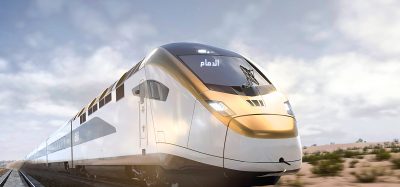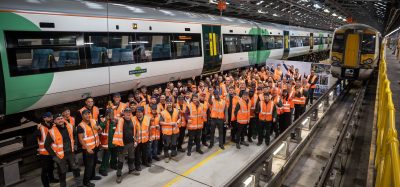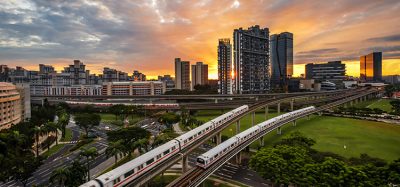Smart Rail: A long-term route map for the Australian rail industry
Posted: 10 December 2018 | | No comments yet
In an interview with Global Railway Review, Danny Broad, CEO of the Australasian Railway Association (ARA), discusses how the Smart Rail Route Map initiative will translate ideas and data into a meaningful direction for how the Australian rail industry can utilise technology in the coming decades.


With the technological revolution surging around the globe, businesses need to ensure they are in the best position possible to maximise the benefits and opportunities afforded by new and emerging technologies. Inherent in this is understanding the risks and obstacles that are likely to emerge in the context of a changing technological paradigm. Nowhere is this more evident than in the Australasian railway industry which continues to undergo significant change. This includes variations to how we move customers and freight in cities that are becoming more congested, how we move trains safely and efficiently around the network, and how we modernise the management of rail assets.
It has become exceedingly important to ensure the Australasian rail industry does more to keep pace to prepare for these changes.
In response, the Australasian rail industry is working together to develop a long-term strategic framework for digital and communication technologies. This commitment is embodied by the Smart Rail initiative which aims to drive a coordinated industry focus to the adoption and deployment of telecommunications and technology initiatives within the industry.
An industry-owned and industry-driven initiative
Danny Broad, CEO of the Australasian Railway Association (ARA), said: “The Smart Rail Route Map is an industry-owned and industry-driven initiative, spearheaded by the ARA and the Rail Manufacturing CRC and supported by Deakin University. It will help our industry to realise the vision of a national approach to rail technology, bringing economies of scale, support interoperability and many other efficiencies.”
Danny continued: “Defining industry goals, mapping the key challenges for the rail sector over the next 30 years relating to technology disruption, and identifying focus area objectives and initiatives is critically important to putting rail on a stronger, more sustainable footing in the future.”
The project will identify a long-term industry programme to improve the rail industry’s ability to adopt and keep pace with telecommunication and information-based technologies.
Smart Rail will focus on standardisation, integration and harmonisation over the next 30 years through the establishment of a common view of priorities, themes, timelines and actions.
Importantly, it will provide a basis for defining the rail industry direction, development initiatives, research programmes and, in effect, provide a framework through which next generation rail technologies can be integrated and supported in the Australasian rail environment.
The Deakin University project team, led by Professor Douglas Creighton from Deakin’s Institute for Intelligent Systems Research and Innovation, is providing expertise in systems mapping when workshopping, developing and modelling the project’s outputs.


Industry engagement
The underlying strength of the project lies in the level of industry engagement. To date, the ARA and Deakin University have held nine workshops, attracting close to 200 participants, and in late-October 2018, both organisations held a Technology and Telecommunications Forum (TTF) in Melbourne to workshop the Smart Rail interim report.
At the event, TTF participants emphasised the challenges and opportunities associated with the deployment of new technologies and communication systems, with skills, collaboration, culture and data highlighted as priority areas for action. Some of the Smart Rail priorities include:
- Passenger rail safety, timeliness, convenience and value-added services
- Freight customer cost-effective services and on-time delivery
- Harmonised and integrated public transport systems that enable seamless end‑to-end journeys
- Cost effective and efficient customer-centric operations
- Smart asset management and maintenance
- Workforce digital and technological skills and competencies
- A national versus an independent approach
- Implications on the future customer experience and consideration for innovation and technology strategy and implementation.
Meeting the challenges head on
One of the most important issues that the Smart Rail project is focusing on is rail’s culture and commitment to customise, which can restrict the adoption and implementation of these systems in line with the normal technology life cycles. The ARA’s work in this area is against the backdrop of a renaissance in rail.
Billions of dollars’ worth of investment has been committed over the next decade. This investment is needed as Australia’s passenger numbers are estimated to grow by 19 per cent, and rail freight by 26 per cent, by 2026.
Danny said: “With more densely populated cities, and more people and freight to move around our cities and through regional areas, it is critical that we – as an industry – have a common view on priorities, themes, timelines and actions so we can meet these challenges head on.”
The Smart Rail Route Map will be technology-neutral and communicated in a non-technical manner. The project outputs will be owned by the Australian rail industry and used to support the introduction of new technologies and services efficiently and cost-effectively.
The ARA Board, which shapes the priorities and sets the policy directions of the ARA, is strongly supportive of the Smart Rail project. It recently agreed to establish an Executive Committee to guide the project’s long-term implementation following the project’s completion in late-2018.
ABOUT THE AUSTRALASIAN RAILWAY ASSOCIATION (ARA)
The ARA is the peak body for rail in Australia, representing all sectors of the rail industry. It represents passenger and freight operators, track owners and managers, manufacturers of rolling stock, construction companies and all other organisations supplying and contributing to the Australasian rail sector. www.ara.net.au
ABOUT THE RAIL MANUFACTURING CRC
The Rail Manufacturing CRC is funded by the Business Cooperative Research Centres Programme of the Australian Government’s Department of Industry, Innovation and Science. The Rail Manufacturing CRC fosters, sponsors and directs collaborative innovative research and commercialisation partnerships between key stakeholders in the rail manufacturing sector, looking to support the development of new products, technologies and supply chain networks to increase Australia’s rail manufacturing capacity and competitiveness. www.rmcrc.com.au
ABOUT DEAKIN UNIVERSITY
Deakin University is a young contemporary university, ranked in the top two per cent of the world’s universities in each of the major rankings, and 213 in the Academic Ranking of World Universities. Deakin researchers are making a difference through world-class research and innovation. www.deakin.edu.au
Biography


Stay Connected with Global Railway Review — Subscribe for Free!
Get exclusive access to the latest rail industry insights from Global Railway Review — all tailored to your interests.
✅ Expert-Led Webinars – Gain insights from global industry leaders
✅ Weekly News & Reports – Rail project updates, thought leadership, and exclusive interviews
✅ Partner Innovations – Discover cutting-edge rail technologies
✅ Print/Digital Magazine – Enjoy two in-depth issues per year, packed with expert content
Choose the updates that matter most to you. Sign up now to stay informed, inspired, and connected — all for free!
Thank you for being part of our community. Let’s keep shaping the future of rail together!







